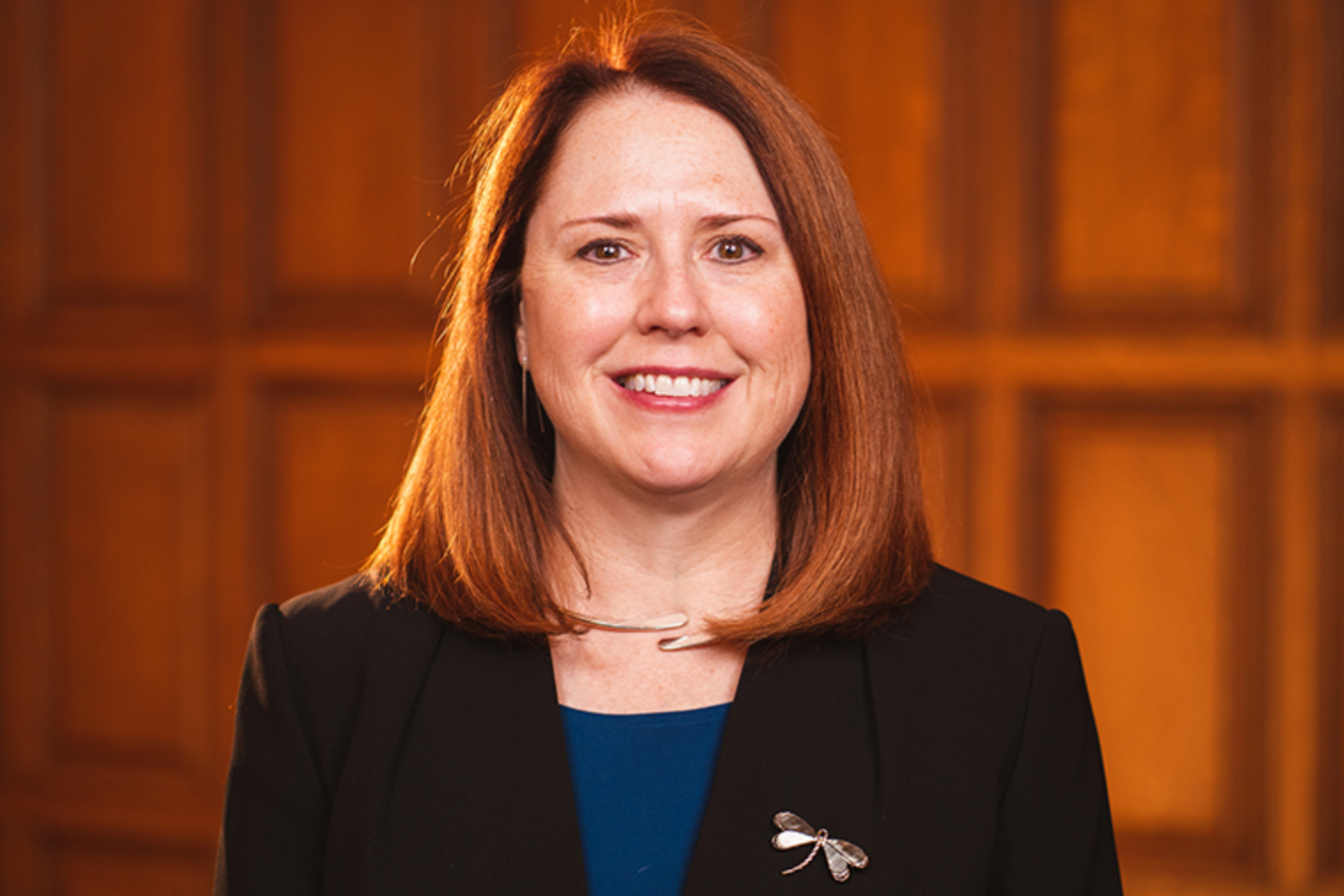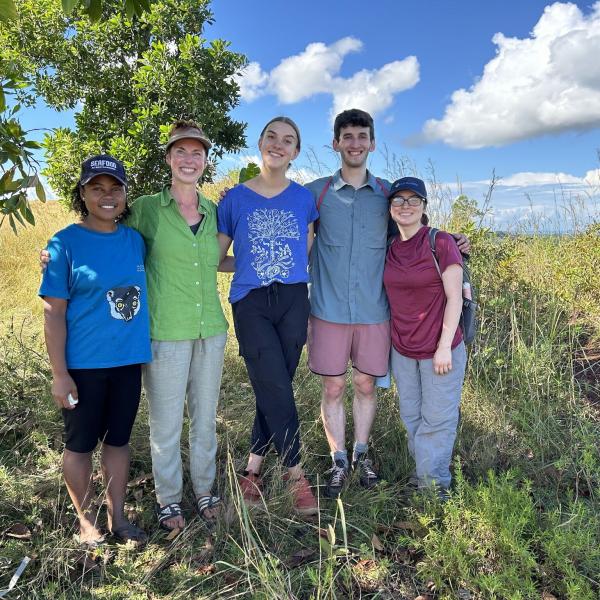Erin McGlothlin, chair of the Department of Germanic Languages & Literatures and professor of German and Jewish studies, was recently named vice dean of undergraduate affairs. Before officially taking on the role this June, McGlothlin spoke with senior Keishi Foecke about what drew her to become vice dean and her vision for the future of the College of Arts & Sciences.
What are some of the reasons you wanted to become vice dean, and what excites you most about leading the College?

This year marks my twentieth year at WashU, and some of the most rewarding moments of my career have been interacting with undergraduate students. I’ve taught undergraduate courses on all levels, I was a Faculty Fellow in Umrath on the South 40 for three years, and I’ve been involved in a first-year Ampersand program that my colleague Anika Walke and I co-created. I’ve seen countless students come in to WashU with a particular set of attitudes and knowledge and have watched them transform over their four years here into more fully-rounded versions of themselves. I love being involved in helping students develop their interests and come into their own as both students and people as they gain independence, self-confidence, and a sense of themselves. College is one of the most critical times in a person’s life, and I feel fortunate to play a role in that journey for many students. I’m so excited to be a part of that growth on a meta-level, continuing my work with individual students but also now working with them and supporting their growth on a larger scale as the vice dean of undergraduate affairs.
What is your vision for the trajectory and growth of the College of Arts & Sciences during your time as the vice dean of undergraduate affairs?
First, I want to spend time getting to know the College of Arts & Sciences up close. I hope to learn more about what students, faculty, and staff are doing in every corner of the College. I’m looking forward to determining where we are collectively, where we want to go, and how we can get there. The university is currently undergoing an intensive period of strategic planning on all levels, and I aim to coordinate the College’s planning with that of Arts & Sciences and the University more broadly. I want to keep the machine well-oiled and make sure students’ needs are satisfied. As we begin to enter into the post-COVID era, these needs are bound to change, so we will constantly re-assess how we can best support students.
How do you see the liberal arts education fitting in WashU’s current mission and its future growth?
I am optimistic that we are seeing a revitalization of the liberal arts and sciences education. Chancellor Martin’s recent blog post about the importance of the arts and sciences in general and the humanities in particular, especially in the context of the pandemic and political turmoil of the moment, was really gratifying, and I couldn’t support it more. An arts and sciences curriculum is more critical than ever and in fact is being desired more than ever by employers. It’s become clear in the past year or so that we need to get back to the basics: media and narrative literacy; literacy in science, technology and the environment; numerical and digital literacy; a solid grounding in ethics; a strong awareness of the diversity of human history and culture, both past and present; a nuanced understanding of social and economic structures and of global dynamics; and, of course, critical thinking, writing and problem-solving skills. We’ve come to recognize the deficiencies in these areas in our society and our nation more broadly, and efforts to recenter those literacies, competencies, and skills will be very important for our attempt to find ourselves again. We’re getting a sense of what’s important.
"College is one of the most critical times in a person's life, and I feel fortunate to play a role in that journey for many students."
How do you plan to make issues of diversity, equity, and inclusion priorities in your leadership?
My predecessors, Dean Jen Smith and the late Dean Jim McLeod, kept issues of diversity, equity, and inclusion at the forefront of their work, and I plan to continue their phenomenal momentum. I want us to consider student experience broadly across different groups and think about how we can enhance it so that all students can have the same quality of experience during their time at WashU. It is unacceptable to leave financially vulnerable students to figure out how to approach their college experience on their own, to allow first-generation college students to navigate this seemingly impenetrable system without support, or to leave the needs of underrepresented students unrecognized and unmet. My goal is to make the College’s efforts much more transparent so that students who attend WashU can navigate this system easily and will know how highly they are valued. I plan to make diversity, equity, and inclusion a central aspect to my work and one that will always be at the forefront of my mind. Our student body is very engaged in matters of social justice and students are rightly pushing the institution forward in this area. I look forward to supporting them in this regard.
You’ve been at WashU since 2001. What has kept you committed to this school after so many years?
We have first-rate students, and that cannot be overstated. The seriousness of purpose with which our students approach their studies is incredible. Even when I’m feeling a little burnt out or tired, the students here inspire me and remind me why my work is important. I’m also lucky to have worked with students in many different capacities and to have been involved in a range of projects at the university. The fact that there’s always an exciting new challenge, initiative, or project to work on with our amazing students makes it easy to stay motivated.
Once we can all be on campus someday, where are undergraduates most likely to find you wandering or taking in the views?
It used to be Holmes Lounge, where I could get my large café au lait from Penny and Arthur and all the staff at Holmes, whom I miss terribly. Now, whenever I’m fortunate enough to be on campus (which is currently the two days a week on which I teach), I rotate between the DUC, Parkside Café, or Whispers Café. Whenever we’re fully back on campus, I can guarantee that at two o’clock every day you will find me standing in line for coffee somewhere. Students are always welcome to talk to me there!



